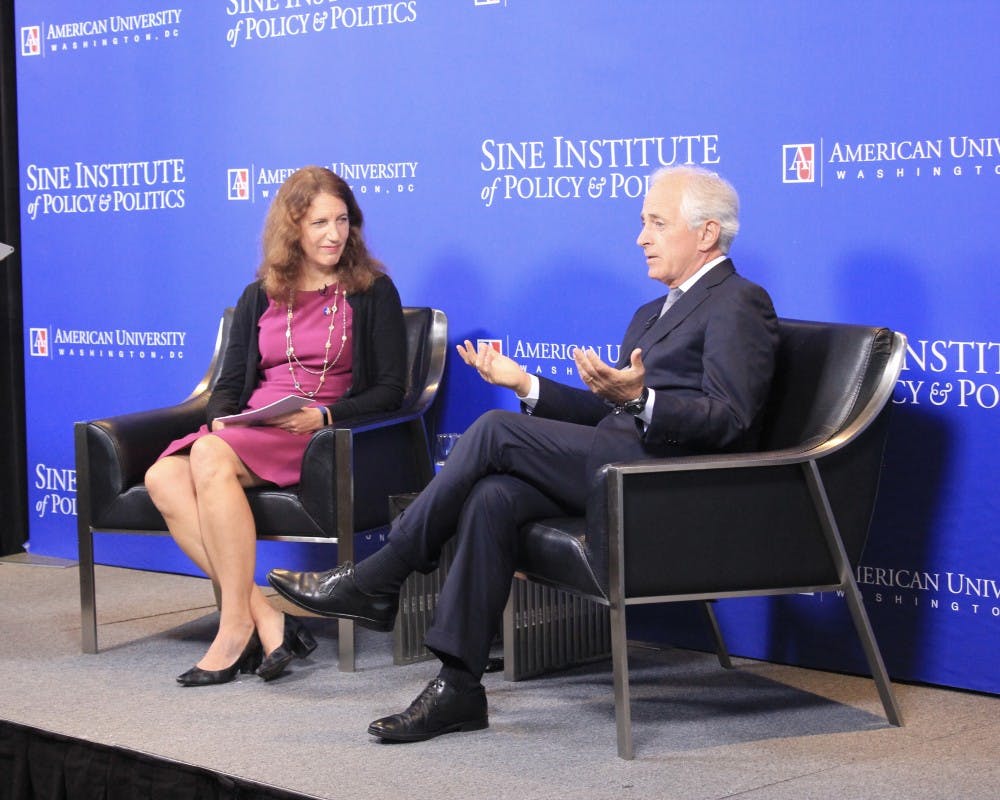AU’s new Sine Institute of Policy and Politics officially launched Tuesday with an event featuring University President Sylvia Burwell and Sen. Bob Corker (R-Tennessee) at the Newseum. The pair discussed bipartisanship — a key mission of the institute — as well as policy issues such as health care and Social Security.
The institute, which was announced on Monday, hopes to become a “laboratory” for university collaboration and an “incubator” for policy solutions created by public, private and nonprofit sector leaders. Additionally, the institute will offer six fellowships to scholars who will connect with students and experts.
Burwell kicked off the event by speaking about the ambition behind the new institute.
"President [Theodore] Roosevelt once said, 'The greatest reward life has to offer is the chance to work hard at work worth doing,'” Burwell said. “The Sine Institute is all about the work that is worth doing.”
The institute is funded by a $10 million donation from AU alumnus and trustee Jeff Sine, an entrepreneur, and his wife Samira Sine, a journalist and children’s advocate.
"I want to dedicate this institute to the process of open minds and open thinking," Jeff Sine told the audience, which included former AU president Neil Kerwin, faculty members and trustees.
After Corker joined Burwell on stage, the pair — who worked together when Burwell served as secretary of health and human services during the Obama administration — discussed how to jumpstart bipartisan discussion of revenue and fiscal responsibility.
"An easy place to begin would be Social Security," Corker said. "It's a mathematical equation."
Burwell asked Corker about the 2018 midterm elections and which policy issues will bring voters to the polls.
“Both parties are pretty bankrupt,” Corker said, following an extended pause. “Is anybody bringing up these important issues that you just brought up? They’re not going to be brought up.”
Corker said neither the Republican nor the Democratic party is discussing the big issues facing Americans, including how technology is affecting the workforce. He added that the midterms will be driven by candidates’ views on Trump, not policy solutions.
Burwell disagreed with Corker, stating that health care will be a driving issue to get people to the polls.
“I think when we’ve looked at what has happened in the smaller elections and … we look at some of the conversations that are occuring in the country, health care is one of those places where I would say there is somewhat of an exception,” Burwell said.
One of the final questions Burwell asked Corker about his views on the United Nations and what the U.S. could be doing to improve its relationships abroad. Corker lamented the lack of attention paid to international issues by voters and the general public.
“We have tremendous issues that should be discussed,” Corker said. “We have massive amounts of man-made famine more than any time in our world’s history. We still have non-state actors that are creating havoc … There are a number of issues but we need to continue to keep talking.”





